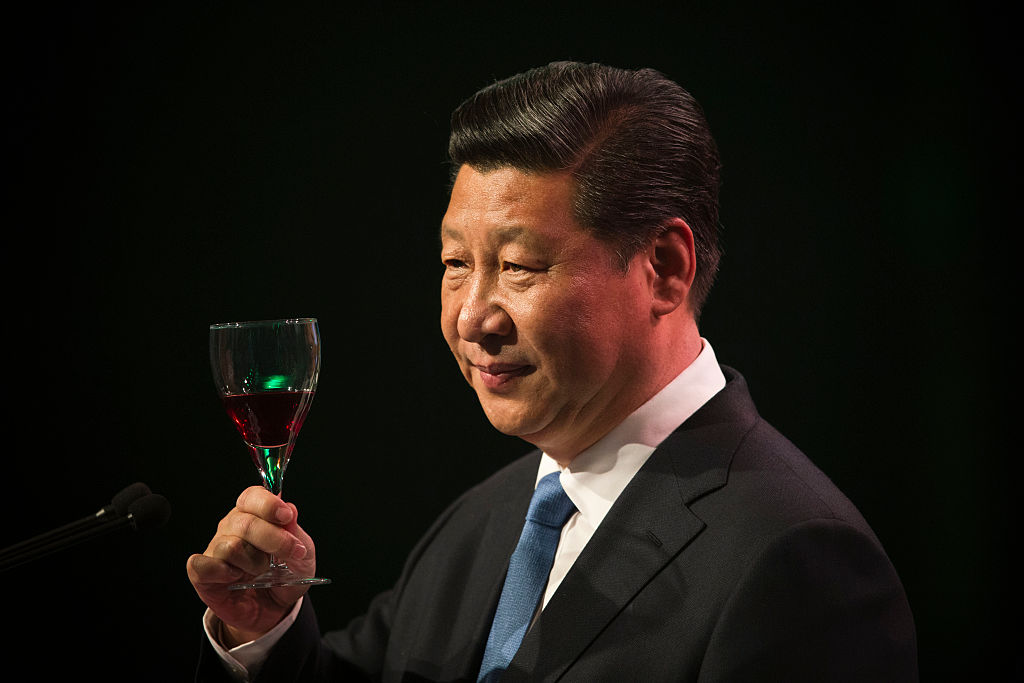
The well-worn observation that China is at once Australia’s largest trading partner and its primary security concern is often portrayed as a conundrum in which trade-offs may be needed.
Beijing’s best strategy these days is to play on this perceived tension and create the sense that if we can get the relationship ‘back on track’ and scrubbed of diplomatic controversies, Canberra will have an economic relationship Australians can take to the bank.
This is the context in which Prime Minister Anthony Albanese will arrive in Beijing this weekend. It will be a formidable diplomatic test, with much attention on whether he raises issues such as the almost five-year arbitrary detention of Australian writer Yang Hengjun, and the prospect of gains including further guarantees of unwinding trade sanctions.
Rather than make this a box-ticking exercise, Albanese needs to demonstrate a framing philosophy that spells out consistency across Australia’s positions, including that economic and security issues won’t be dealt with separately and that we will not return to the era of compromising our sovereignty in the interests of a prosperous relationship.
Such a message would serve as a deterrent: there is no point trying to bully us. This clarity will be vital given that Albanese will join his trade minister and a business delegation in Shanghai, so he must show that Australia hasn’t divorced economics from security.
There’s growing concern that the milder rhetoric and diplomacy with which the Albanese government has approached China is in danger of lurching into silence and inaction. Australian reticence on Beijing’s breaches in the South China Sea and the decisions to call off the World Trade Organization cases—enabling Beijing to escape international judgement on its coercive behaviour—were starting to suggest self-imposed censorship.
Australia cannot pick and choose the international rules it upholds, or when to hold others to account for international misconduct.
Meanwhile, Beijing will be looking to bed down Australian quiescence with a smiling public face conveying that the relationship is ‘back to normal’, by which it means Canberra subordinates its security interests to the economic relationship.
President Xi Jinping will continue to press for a pathway to accession to the Comprehensive and Progressive Agreement for Trans-Pacific Partnership, a return to silence on the South China Sea, a muted Quad and a ceiling on the Five Eyes intelligence grouping, forestalling any ministerial-level meetings.
Ultimately, China wants to be able to say that Australia’s change of position has allowed this visit amid stabilising relations, as though we were rebellious teenagers who have come to our senses.
Xi will encourage Albanese and Australia to limit themselves to the hesitancy of a ‘middle power’ that lacks agency, when in fact Australia in 2023 is a regional power with global influence, responsibilities and values that include respect for sovereignty, international rules and human rights.
For a self-confident Australia, there is no sugar-coating many issues with Beijing, nor any getting around the fact that areas for cooperation are limited because we have fundamentally different views on the future of our region and world.
Knowing this, the Chinese government has been clearing the decks for the visit by releasing detained journalist Cheng Lei and flagging an end to unjustified tariffs on Australian wine.
But Australian positions have also been locked in, setting an important trajectory for Albanese. The prime minister’s visit to Washington last week ended our awkward silence on the South China Sea, yielding a joint statement that backed the Philippines by condemning China’s ‘dangerous’ actions around the Second Thomas Shoal.
And the head of the Australian Security and Intelligence Organisation, Mike Burgess, joined his Five Eyes counterparts last month in reminding everyone that Beijing’s malicious cyber activity is high on the list of topics that can’t be avoided.
On AUKUS, Albanese’s biggest challenge will be to persuade Xi that the pact is going to work. Given that the biggest determinant of AUKUS success is political will, the prime minister should leave no doubt that he and his British and American counterparts are committed.
Beijing fears the collective symbolism and substance of AUKUS. It doesn’t realistically expect Australia to pull out, but it will continue portraying it as a cost for which Canberra needs to atone through other concessions.
Australia should be prepared to make clear that it will actively employ its economic clout in the pursuit of greater strategic goals, if needed.
That doesn’t mean decoupling but, as the US has done with semiconductors, being prepared to cut China off from strategic resources such as critical minerals if those resources will power Beijing’s aggression.
Albanese needs to raise all these issues and be clear that they sit within an enduring world view in which international rules keep us safer and respect for all countries’ sovereignty is an essential element of the global system.
Pulling punches on international security in the hope of frictionless diplomacy and chasing short-term economic gain doesn’t lead to authoritarian reciprocity. They only show that aggression and coercion work.

